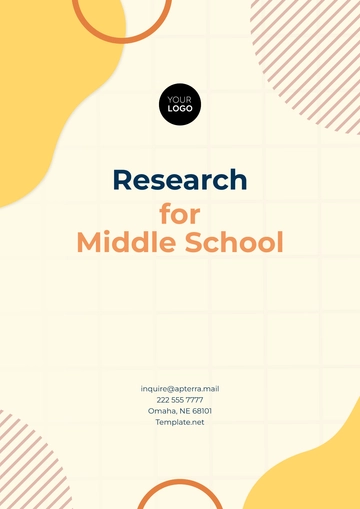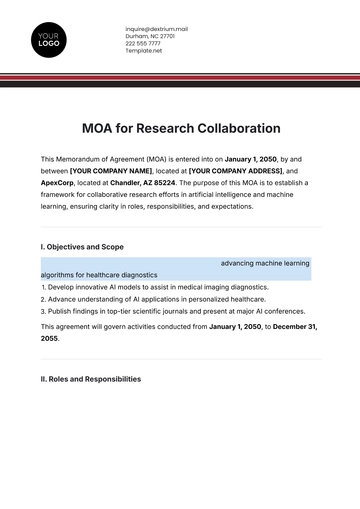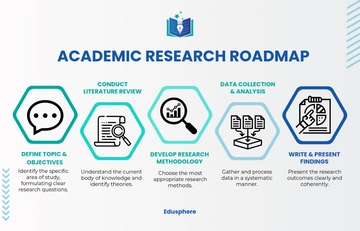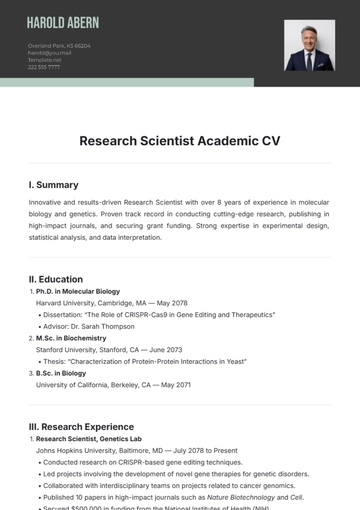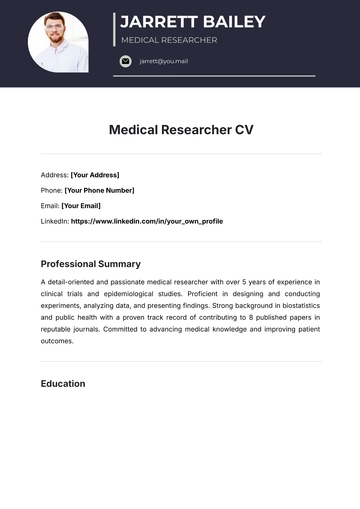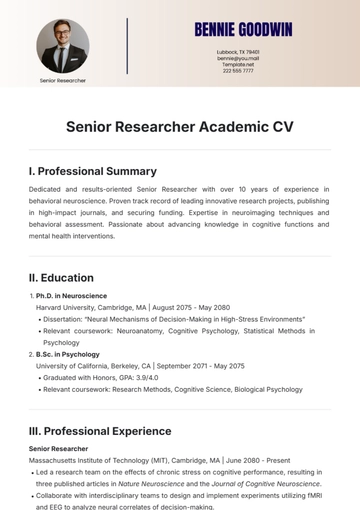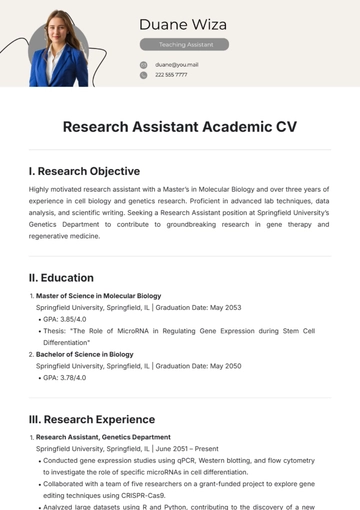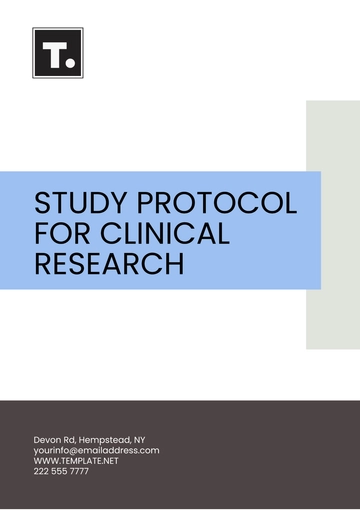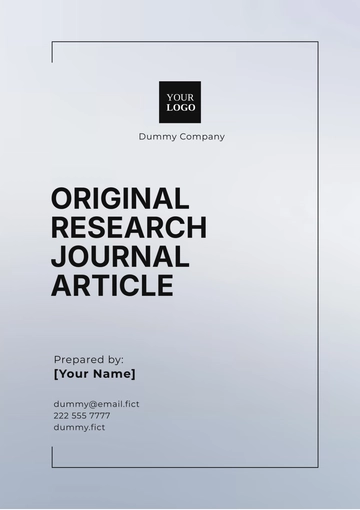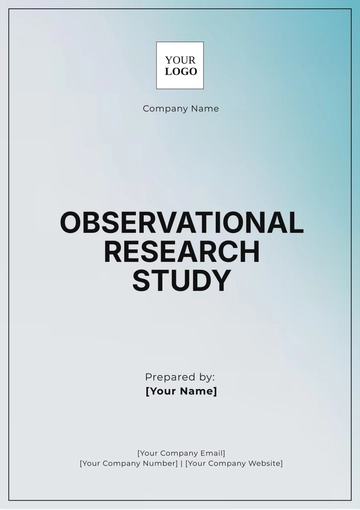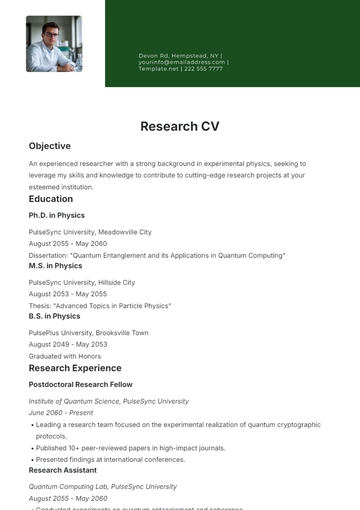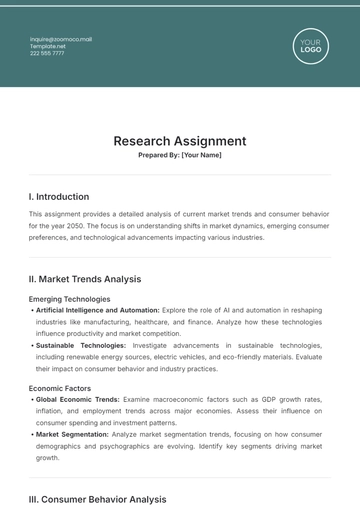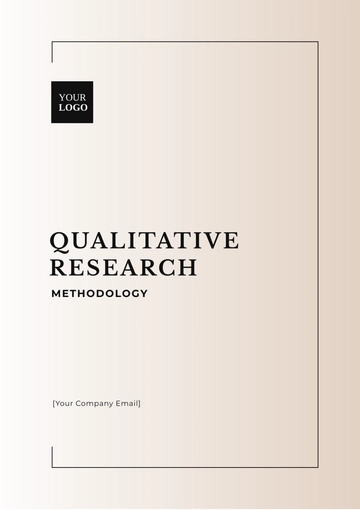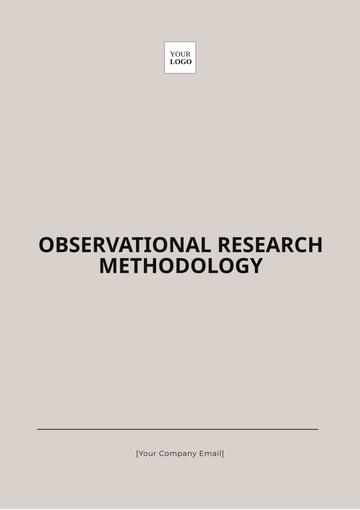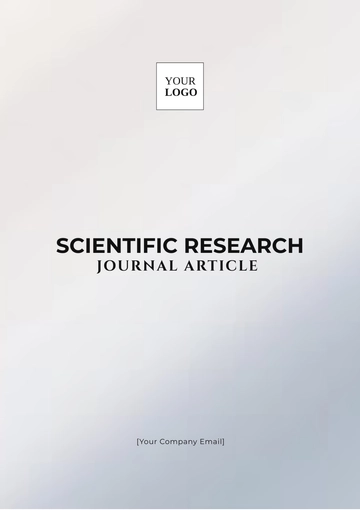Free Academic Research

Prepared By : | [Your Name] |
Affiliation: | Prestigious University Department of Neuroscience |
Research Done for: | [Your Company Name] |
I. Introduction
Research Title: Exploring the Neurobiological Mechanisms of Memory Formation in Alzheimer's Disease Patients
 This study aims to investigate the neurobiological underpinnings of memory formation in individuals diagnosed with Alzheimer's disease, to identify potential therapeutic targets for intervention.
This study aims to investigate the neurobiological underpinnings of memory formation in individuals diagnosed with Alzheimer's disease, to identify potential therapeutic targets for intervention.
II. Literature Review
A. Summary
The literature review reveals a substantial body of research indicating alterations in hippocampal functioning and synaptic plasticity in Alzheimer's disease patients, suggesting a disruption in the mechanisms underlying memory formation.
B. Key Concepts
Notable concepts include the role of amyloid-beta and tau pathology, dysregulation of neurotransmitter systems, and impaired neurogenesis in Alzheimer's disease progression.
Citation Style: APA |
III. Research Questions
A. Primary Research Question
What specific neurobiological mechanisms contribute to impaired memory formation in Alzheimer's disease patients?
B. Secondary Research Questions
How do alterations in hippocampal structure and function correlate with memory deficits in Alzheimer's disease?
What role do neuroinflammatory processes play in disrupting synaptic plasticity and memory consolidation in Alzheimer's disease?
Can targeting specific molecular pathways restore memory function in Alzheimer's disease models?
III. Methodology
A. Study Design
The study employs a design, incorporating primary data collection through both qualitative and quantitative methods. This hybrid approach facilitates a comprehensive analysis of the neural correlates of [Behavior or Condition].
B. Participant Selection
Participants are selected based on the following criteria:
Criteria | Inclusion | Exclusion | Notes |
|---|---|---|---|
Age | 18-65 Years | Under 18 or over 65 | Adult population focus |
Health Condition | No diagnosed neurological condition | Any neurological disorder | Control group standardization |
Medication | Not on neuroactive medications | Use of neuroactive medications | Eliminate pharmacological influences |
Cognitive Baseline | Normal cognitive function | Cognitive impairment | Baseline cognitive performance |
Consent | Written informed consent | Lack of consent | Ethical requirement |
C. Data Collection Techniques
Data collection will utilize multiple techniques:
Neuroimaging (e.g., fMRI, PET scans)
Neurophysiological recordings (e.g., EEG, MEG)
Cognitive and psychological testing
Behavioral assessments
Biochemical assays
IV. Data Analysis
The data analysis plan integrates both traditional statistical methods and modern data science techniques to validate and interpret the findings effectively. Key steps in the data analysis process include:
Data Cleaning and Preparation
Descriptive Statistics
Correlational Analysis
Multivariate Regression Models
Machine Learning Algorithms for pattern recognition and prediction
Special attention will be given to the ethical handling and privacy concerns of personal and sensitive data, adhering to both [YOUR COMPANY NAME] policies and international regulations
V. Ethical Considerations
A. Institutional Review Board (IRB) Approval
The Institutional Review Board at Prestigious University has authorized this research study.
B. Informed Consent
All participants will provide informed consent before their involvement in the study, with provisions for capacity assessment for Alzheimer's disease patients.
C. Confidentiality
The confidentiality of participant information will be upheld by implementing methods such as the anonymization of data to prevent the identification of individuals, coupled with the adoption of secure storage procedures to ensure that all data is kept safe from unauthorized access or breaches.
VI. Timeline
Research Timeline: |
|---|
Recruitment and screening: Months 1-3 |
Data collection and analysis: Months 4-18 |
Manuscript preparation and submission: Months 19-24 |
VII. Budget
A. Funding Source:
National Institutes of Health (NIH) Grant #R01AGXXXXX
B. Budget Allocation:
Neuroimaging assessments: $150,000
Electrophysiological equipment: $75,000
Personnel salaries: $300,000
Consumables and reagents: $50,000
VIII. References
Alzheimer's Association. (2021). 2021 Alzheimer's disease facts and figures. Alzheimer's & Dementia, 17(3), 327-406.
Holtzman, D. M., Morris, J. C., & Goate, A. M. (2011). Alzheimer's disease: the challenge of the second century. Science Translational Medicine, 3(77), 77sr1.
Selkoe, D. J., & Hardy, J. (2016). The amyloid hypothesis of Alzheimer's disease at 25 years. EMBO Molecular Medicine, 8(6), 595-608.
- 100% Customizable, free editor
- Access 1 Million+ Templates, photo’s & graphics
- Download or share as a template
- Click and replace photos, graphics, text, backgrounds
- Resize, crop, AI write & more
- Access advanced editor
Enhance and Discover the pinnacle of academic prowess with Template.net's Academic Research Template. Crafted to elevate your scholarly endeavors, this editable and customizable template empowers you to shape your research with precision. Seamlessly integrate your insights with ease, courtesy of our Ai Editor Tool. Propel your academic journey forward today.




